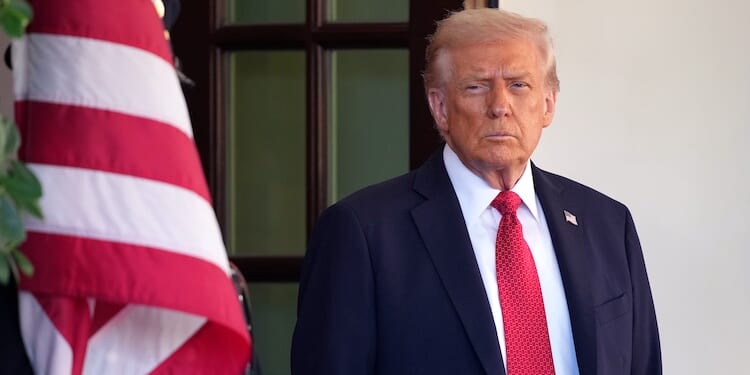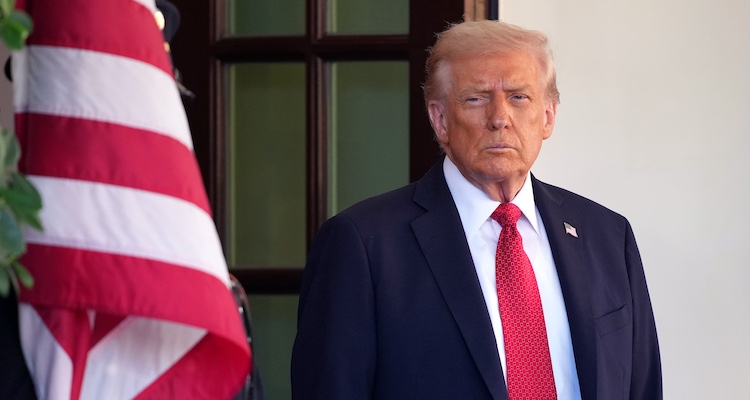Although President Trump tends to mostly trust his own counsel, an undercurrent of his diplomacy in the Middle East has been the president’s willingness to let his mind be changed on key tactical questions.
This is the clear takeaway from his interview with Time magazine, which presents Trump’s narrative of how the Gaza deal came together.
One lesson the president routinely learned was the power of power. In 2024, Israel’s willingness to fight fire with fire when it came to Iran’s attacks, including targeting its nuclear infrastructure, was “unnerving to the administration,” Time reports, which “feared the bombing campaign would derail its efforts at diplomacy.”
This worry persisted despite the fact that the White House had given Benjamin Netanyahu a green light—but only after Trump had 60 days to first try to get Iran to agree to a deal. As soon as the clock expired, Israel struck. “At first, a White House official says, Trump was frustrated—the offensive jeopardized the Administration’s hopes of a nuclear deal with Tehran.”
But the strikes were effective and the president adjusted. “Trump warmed to the idea of joining the strikes, seeing their impact and concurring with Netanyahu’s assessment that the Iranians were trying to manipulate him. On June 22, Trump unleashed U.S. bunker-buster bombs that crippled Iran’s nuclear infrastructure, according to U.S. and Israeli officials.”
Then more recently, Trump again showed flexibility when Israel struck Hamas targets inside Qatar. Time says the attack “enraged Trump.” The president himself tells Time that the Israeli strike was “terrible” and “a tactical mistake.” But the reality proved otherwise, mainly because Trump saw it as an opportunity to bring the parties together rather than to let it divide them further.
“We had an opening,” Jared Kushner told Time. “It’s just an element of how the President thinks.” Meetings with foreign leaders held immediately after the strike birthed the president’s 20-point plan, the backbone of the cease-fire deal that would soon mark one of Trump’s biggest foreign-policy accomplishments. The Israeli strike, Trump said, “was so out of joint that it sort of got everybody to do what they have to do. If you took that away, we might not be talking about this subject right now.”
Trump isn’t exactly known for his humility, but here is admitting that an Israeli strike he opposed is the main reason he got his deal.
One reason Trump may have been so open to persuasion is because, despite his realist-leaning statements on the limits of American force, his instincts naturally lean toward taking action or dishing out credible threats.
It helps that most of Trump’s threats at least seem credible. A former adviser to Israeli leader Shimon Peres told Time that Trump’s suggestion to turn Gaza in the Riviera of the region “scared the hell out of” Arab negotiators and focused their attention on getting a deal.
Trump’s willingness to use military force against Iran a few months later would solidify in regional leaders’ minds the idea that the president really wasn’t messing around. Thus, when he warned that Hamas faced “complete obliteration” if it didn’t return all the hostages—and not in stages, but at the outset of a deal—Qatar and Turkey believed him and pressed Hamas to agree.
One other detail from the interview is worth noting. Arab leaders were convinced that Trump meant what he said. But it’s also clear that Trump gained respect for the Israelis when he realized that they meant what they said, too.
The example given by Time relates to the hostages. It’s no secret that Israel’s commitment to redeeming its captives comes at a strategic cost. To someone like Trump, a rare Western leader who exults in military victory (and says the word victory), therefore, it can be unconvincing. When the choice comes down to totally obliterating the enemy or bringing home the hostages, would Israel really choose the hostages? Trump found out the answer was yes.
“Israel was so intent on the hostages, I was actually surprised,” Trump told Time. “You would have thought they would have sacrificed the hostages in order to keep going, right? The people of Israel wanted the hostages more than they wanted anything else.”
Therefore, Trump went to Hamas armed with a record of making good on his threats and said, in the president’s words, “You’re giving us the f–king hostages, all of them.” It’s amazing what a few well-timed displays of strength can do.


















